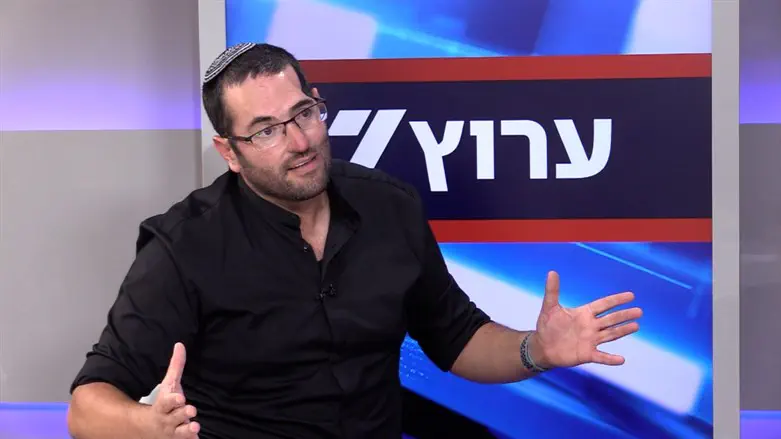
Aharon Karov, the IDF soldier who suffered a head injury during Operation Cast Lead, days after his wedding, spoke with Arutz Sheva about his injury and how he succeeded in moving from there to where he is today.
Karov went to battle the morning after his wedding, after having been called up to command his unit. He was named the most severely wounded soldier of Cast Lead, and nearly lost his life when an explosive detonated on top of him in Gaza.
Today Karov serves as the head of alumni at Orthodox Union (OU) Israel's youth center. He spoke with Arutz Sheva in honor of the day recognizing injured IDF soldiers and the victims of terror attacks.
"There are many significant remembrance days, and a day of recognition - as someone who was injured - was really lacking, because they didn't recognize those who were injured and suffered the rest of their lives from that injury. It's not as if I suffered an injury 13 years ago and today everything is totally fine," Karov emphasized.
He added, "Thank G-d, I am okay. I walk. I work. I run a marathon and I do many things and speak in many places around the country. But there is a day every week when I undergo treatments at a hospital, and I'm there a lot. The hospital is a very important part of my life. Someone on the outside can't see it, and he could think that everything is as usual, but it's not."
In his talks, Karov tries to send a clear message of action for the sake of the public: "I work in the OU's youth centers all around Israel, and I take youth in grades 11 and 12 and explain to them why it's important to go to the army."
"A while ago I gave a talk to company commanders in the IDF, and at the end of the talk someone raised his hand and asked me, 'If now, in your situation, they would tell you to go to a military operation, and in another ten days you'll be injured. Would you go to Gaza, or would you not go to Gaza?' I told him that from my perspective, the answer is obvious, and I would go."
"The officer wondered how it could be that I would agree to be injured again. My explanation is very simple: I am going to Gaza because I understand that it is done for the sake of the country. I'm not looking only at myself, but as something which is much bigger, and that gives me the strength. This is the message that I try to convey in my talks to soldiers, youth, and basically everyone," he concluded.
